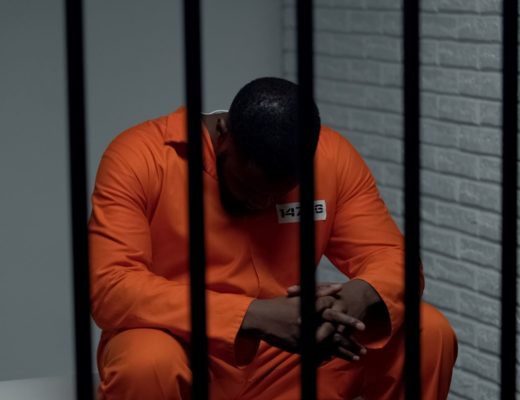Mississippi has some of the highest rates of incarceration in the country. Over 1,000 people for every 100,000 are in some form of prison or detention center.
High rates of imprisonment are inherently disastrous. Overcrowded prisons lead to poor conditions, a lack of resources, and an economic drain — as well as an incalculable impact on affected communities. One of the reasons Mississippi has such high levels of incarceration is due to its habitual offender laws. These are laws that require harsher sentencing for perceived ‘repeated offenders’.
These laws often mandate long jail sentences for non-violent crimes, such as drug-related offenses. By removing these habitual offender laws, Mississippi can begin to resolve its imprisonment issues.
What Are Habitual Offender Laws?
 Currently, a few laws in the Mississippi justice system mandate minimum sentencing for habitual offenders. Mississippi Code § 99-19-81 and Mississippi Code § 99-19-83 are the two main ones that lawmakers are trying to adjust.
Currently, a few laws in the Mississippi justice system mandate minimum sentencing for habitual offenders. Mississippi Code § 99-19-81 and Mississippi Code § 99-19-83 are the two main ones that lawmakers are trying to adjust.
The reason these two codes are infamous is that they require the minimum sentencing to be the maximum sentencing. Meaning if the max sentence a person can face is life in prison, under these codes they will receive life in prison — even if they have already served time for prior convictions.
Furthermore, these codes remove a person’s ability to even be considered for parole or probation. Maximum sentencing with no hope for early release means thousands of prisoners are sitting in jail for extended periods of time. This contributes to overcrowding.
Other states who possessed similar habitual offender laws have remodeled their legislation to three-strikes laws. These laws are the same as habitual offender laws but, for some states, focus more on violent crimes rather than non-violent crimes. For example, Washington state was one of the first states to implement three-strikes legislation, which does not encompass non-violent drug-related offenses.
Unfortunately, other states that have enacted three-strikes rules still maintain persecution of non-violent drug crimes. Making these alternative forms of habitual offender laws just as damaging.
What Is Happening in MS Today?
In 2021, the governor of Mississippi Tate Reeves signed a new bill into law that should counteract these habitual offender laws.
The bill, known as SB2795, would mitigate both aforementioned codes and allows prisoners the opportunity for parole. Those who are eligible must first serve 25% of their sentencing or, if they were sentenced to 30 years or more, they must serve at least 10 years before they may be considered.
This bill, which had been vetoed the previous year, is a huge step in the right direction for MS. Allowing the opportunity for parole will prevent people from serving absurdly long sentences for non-violent crimes.
Unfortunately, the passage of this bill does not guarantee all inmates the opportunity for parole. SB2795 excludes habitual offenders from earned parole. As stated in Section 2(a) of the bill, “No person sentenced as a confirmed and habitual criminal under the provisions of Sections 99-19-81 through 99-19-87 shall be eligible for parole.”
Additionally, in order for a person to be approved for parole or probation, a judge must sign off on the request. A majority of judges in Mississippi are still abiding by the habitual offender laws and not granting requests from habitual offenders.
Mississippi Cannabis Prisoners
Mississippi has some of the toughest cannabis laws in the United States, and as a result, the state has a large number of people incarcerated for marijuana-related offenses.
Below are just a few of the people who are currently serving time in Mississippi prisons for cannabis-related crimes.
John McDonald: 60 Years for Cannabis
John McDonald is just one of many other victims of Mississippi’s harsh habitual offender law. John was arrested and charged with possession of marijuana, a nonviolent offense, and was sentenced to 60 years in prison.
This law has ruined John’s life, as he has been unable to be there for his family or watch his children grow up. He hopes to one day be released from prison and use his experiences to help educate young people caught in the judicial system.
Kendall Martin: 60 Years for Cannabis
Kendall Martin was sentenced to 60 years in prison for possession of marijuana without the possibility of parole. The sentence was a mandatory minimum under Mississippi’s habitual offender laws, which are some of the harshest in the country.
The sentence equates to a life sentence for Martin, who has never been convicted of anything violent before in his life. By the time of his scheduled release, he is expected to be 96 years old!
Chris Butler: 30 Years for Cannabis
Christopher Butler was convicted of possession of marijuana in the state of Mississippi. His only prior convictions were for possession of marijuana, and both of those occurred when he was a teenager.
However, because he received his third conviction for possession of marijuana, the state was able to sentence him to serve a 30-year mandatory sentence under the habitual offender statute.
Harms and Solutions:
The fact that SB2795 does not allow habitual offenders an opportunity for earned parole is a huge blow to the MS corrections system.
Overcrowding in prison systems is synonymous with human rights violations. When a prison has breached its capacity resources become scarcer, the treatment of prisoners worsens, and violence and sickness skyrocket.
For example, in a post-pandemic world, the concerns of Covid-19 are only amplified in an overcrowded prison. In 2020, prisoners were provided little to no healthcare resources during the height of the pandemic. This resulted in thousands of prisoners and prison staff becoming infected.
Since then, Covid-19 has not been eradicated just yet. As such, prisoners are still facing a health crisis in overcrowded complexes.
Mississippi has some of the highest rates of overcrowding than any other state. Their incarceration rates are through the roof and they must take the steps to lower them. Bill SB2795 is a small nudge in the right direction.
Sadly, the bill’s refusal to include habitual offenders in earned parole is a huge setback. In order to truly combat the harms of the MS prison complex, habitual offender laws must be mitigated. But how can MS accomplish this?
The first step would be to draft new legislation to allow habitual offenders the opportunity for parole. Alternatively, the current codes can be adjusted to ensure non-violent offenders or those who already served time for prior offenses are not mandated to receive the max sentence.
While this would be a major improvement to the current legislation, the true end goal MS should have is the removal of habitual offender laws entirely. There have been numerous studies for years that habitual offender laws are not effective in deterring criminal behavior nor in capturing the high-level criminals these laws were designed to catch.
Instead, these outdated laws put people behind bars for incredibly long periods of time regardless of their circumstances. Leading to overcrowded prisons and undue impacts throughout the United States.
It is in the best interest of all of us that every state with habitual offender laws begins to take the steps to remove them.








No Comments